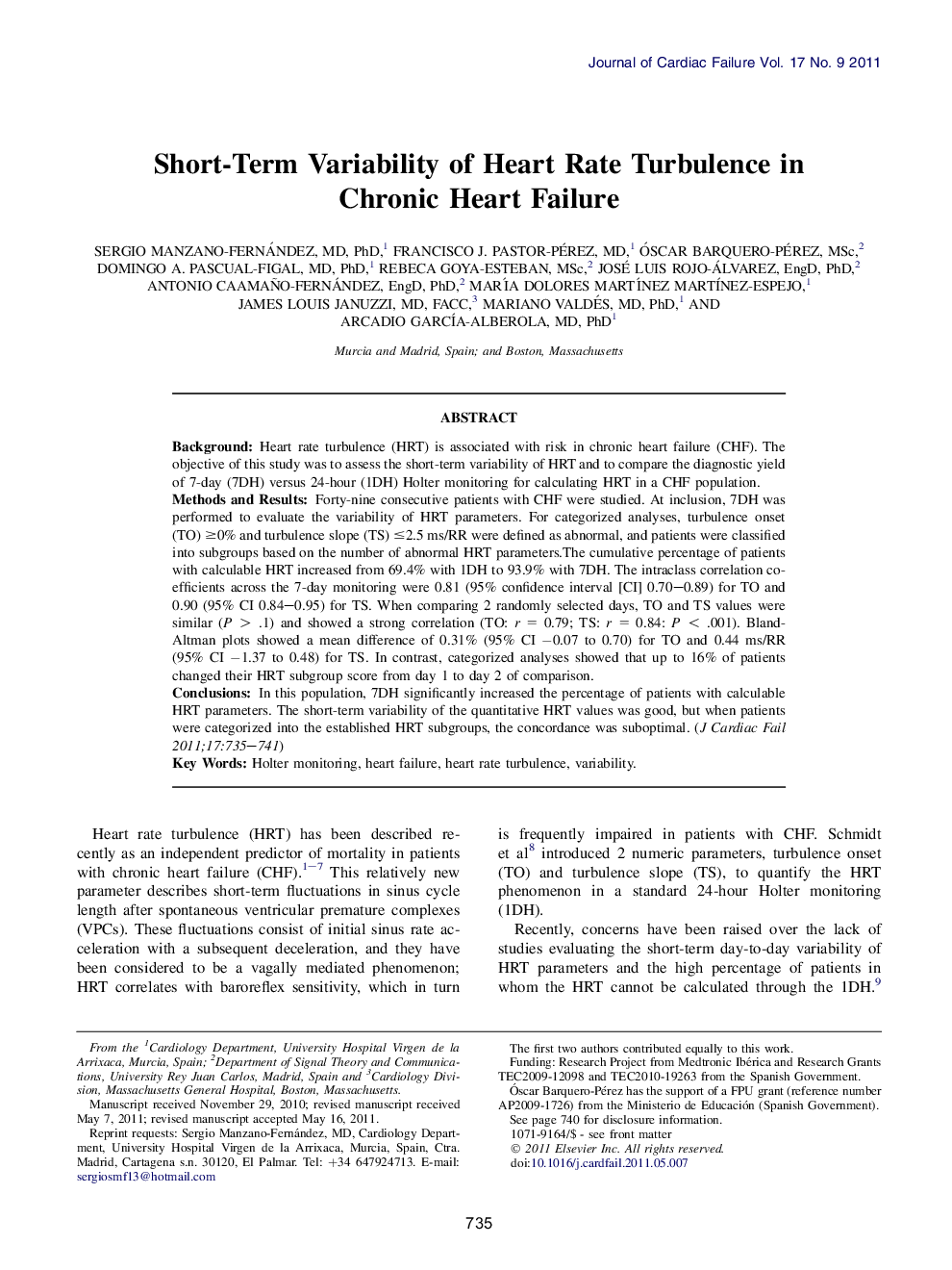| Article ID | Journal | Published Year | Pages | File Type |
|---|---|---|---|---|
| 5983884 | Journal of Cardiac Failure | 2011 | 7 Pages |
BackgroundHeart rate turbulence (HRT) is associated with risk in chronic heart failure (CHF). The objective of this study was to assess the short-term variability of HRT and to compare the diagnostic yield of 7-day (7DH) versus 24-hour (1DH) Holter monitoring for calculating HRT in a CHF population.Methods and ResultsForty-nine consecutive patients with CHF were studied. At inclusion, 7DH was performed to evaluate the variability of HRT parameters. For categorized analyses, turbulence onset (TO) â¥0% and turbulence slope (TS) â¤2.5 ms/RR were defined as abnormal, and patients were classified into subgroups based on the number of abnormal HRT parameters.The cumulative percentage of patients with calculable HRT increased from 69.4% with 1DH to 93.9% with 7DH. The intraclass correlation coefficients across the 7-day monitoring were 0.81 (95% confidence interval [CI] 0.70-0.89) for TO and 0.90 (95% CI 0.84-0.95) for TS. When comparing 2 randomly selected days, TO and TS values were similar (P > .1) and showed a strong correlation (TO: r = 0.79; TS: r = 0.84: P < .001). Bland-Altman plots showed a mean difference of 0.31% (95% CI â0.07 to 0.70) for TO and 0.44 ms/RR (95% CI â1.37 to 0.48) for TS. In contrast, categorized analyses showed that up to 16% of patients changed their HRT subgroup score from day 1 to day 2 of comparison.ConclusionsIn this population, 7DH significantly increased the percentage of patients with calculable HRT parameters. The short-term variability of the quantitative HRT values was good, but when patients were categorized into the established HRT subgroups, the concordance was suboptimal.
